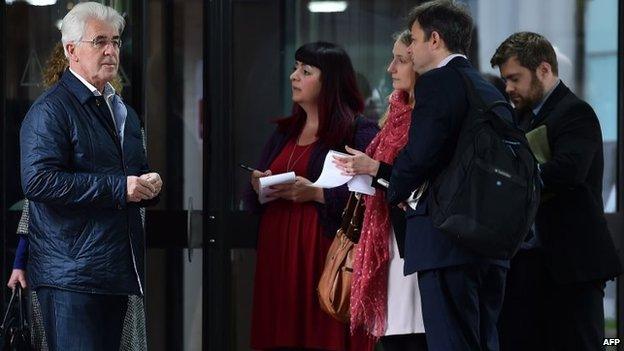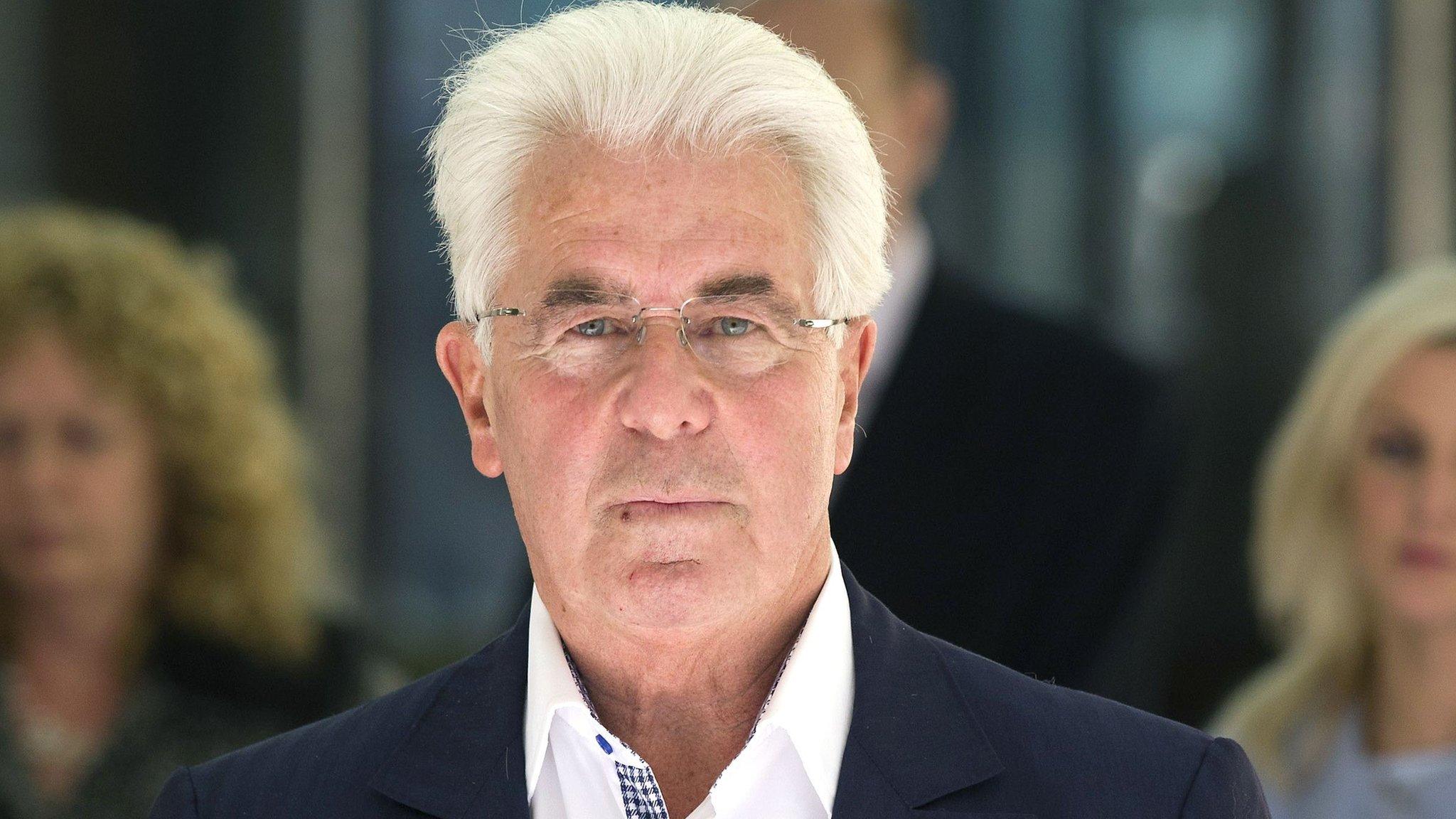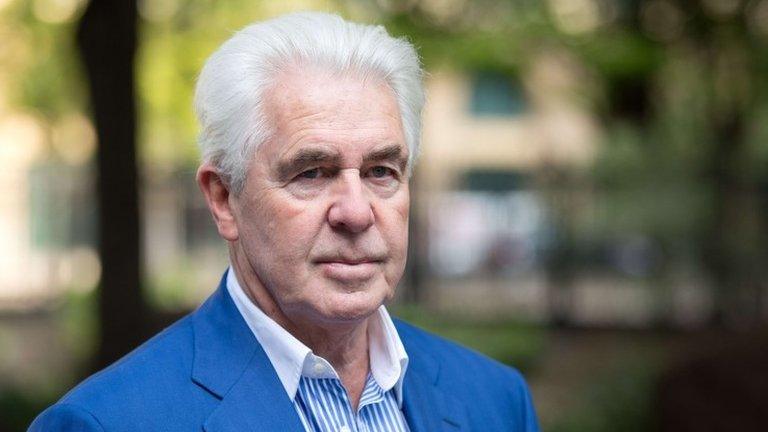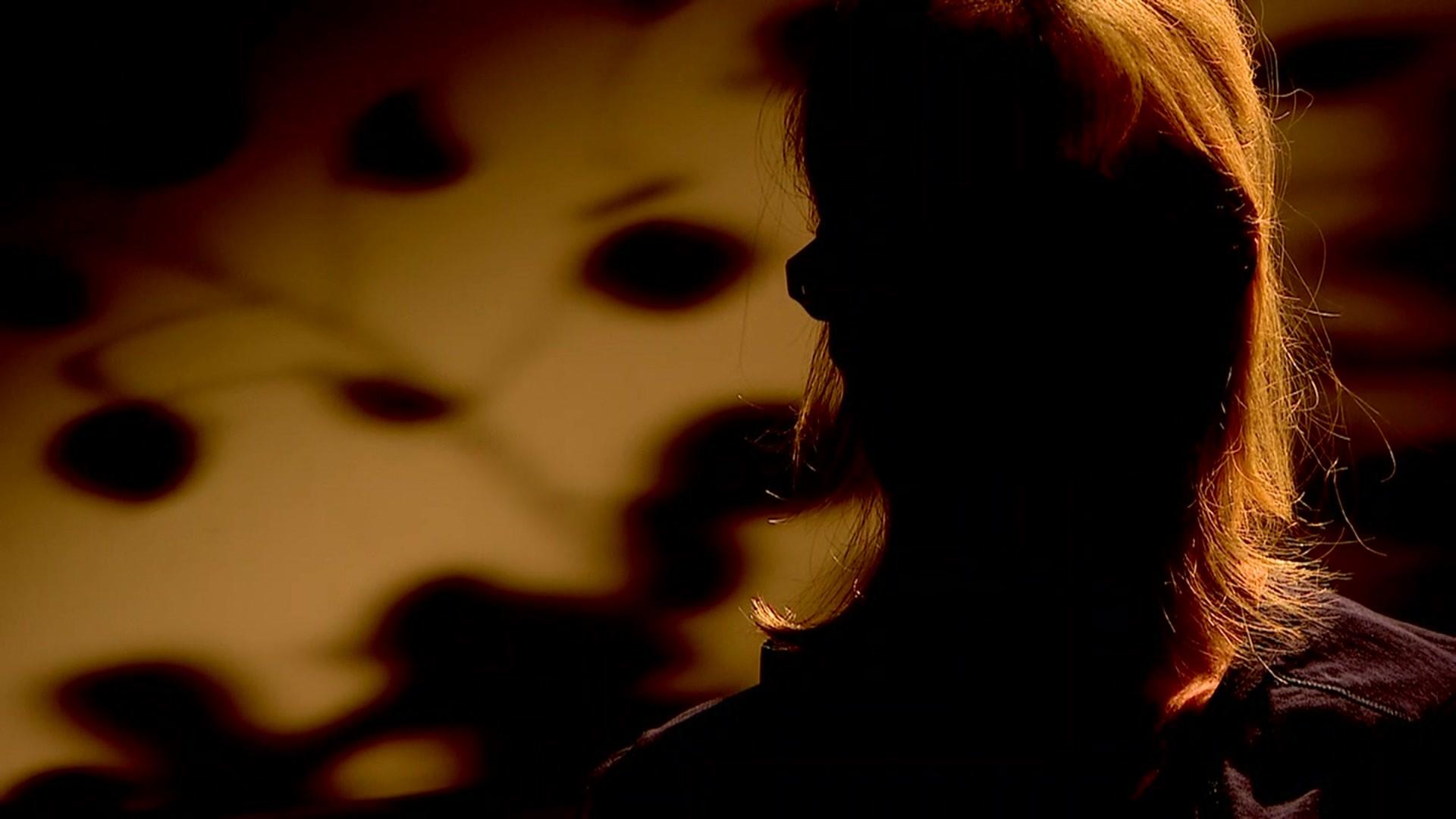Max Clifford victims describe impact of abuse
- Published
Sentencing Clifford, Judge Anthony Leonard said he had groomed and degraded his victims.
Impact statements revealing how Max Clifford's abuse changed the lives of his victims have been heard in court.
One said she abandoned her career plans, while another said he took away her trust in men.
On Monday, the celebrity publicist became the first person convicted under Operation Yewtree for eight indecent assaults on four young women and girls.
Clifford, 71, is about to be sentenced. His defence has called on the judge not to make an example of him.
The assaults took place in the 1970s and 80s, on victims aged between 15 and 18 at the time.
'Lost' years
In his remarks prior to announcing the sentence, Judge Anthony Leonard said some of Clifford's actions, had they happened today, would have been tried as rape.
He said Clifford's dominant character and his position in the entertainment business prevented victims coming forward.
Max Clifford's victim: "I'll never forget what happened"
Arriving at court earlier, the PR man told reporters he stood by the account he had given since his arrest in December 2012.
Pausing for photographers outside Southwark Crown Court, he said: "I stand by everything I have said in the last 17 months."
BBC News correspondent Richard Lister said Clifford was "entirely unrepentant" and "seems to think he did nothing wrong".
During his trial Clifford accused his victims of being "fantasists" and "opportunists" looking for money.
In statements read out by the prosecution on Friday, one victim - who was 15 at the time - revealed how she had missed out on having her first sexual relationship with someone her own age because of what Clifford did.
Another said she would cry whenever she saw him on television following the assault and feared the police would laugh at her when she finally came forward.
Prosecuting barrister Rosina Cottage QC said one of the women felt she had "lost the last 20 years" of her life.
'Sentence restricted'
A woman who appeared as an extra in the James Bond film Octopussy had given up on pursuing her career after she was abused in the early 1980s, the court heard.
"She aspired to be a stunt double in films but could not follow her dream after what happened to her," Ms Cottage told the court.

Clifford told reporters it had been "not the best day of my life"
Judge Anthony Leonard explained that if the offences had been committed after 2003, the starting point for sentencing would have been 10 years in prison.
"My sentencing powers are restricted. The maximum sentence available at the time was two years in prison," he told the court.
Charity work
Clifford's defence team argued that the fact the last assault had taken place 29 years ago was a "powerful factor in his favour".
He had had plenty of contact with young women and girls in the intervening years and there had "never been any suggestion of inappropriate behaviour", his barrister Richard Horwell QC told the court.
Mr Horwell said his client should not "be made an example following a number of failed prosecutions" - an apparent reference to recent high-profile cases in which celebrities have been cleared of historic abuse claims.
The defence also pointed to Clifford's charity work - something he sought to highlight during the trial - saying he had raised "possibly millions" for deserving causes.
After the case was adjourned ahead of sentencing at 14:00 BST, Clifford waved to supporters who waved back and blew kisses.
Prosecutors told the court they would not pursue the charge on which the jury had failed to reach a verdict.
They have applied for Clifford to pay costs of £66,704.
- Published28 April 2014

- Published28 April 2014

- Published28 April 2014
